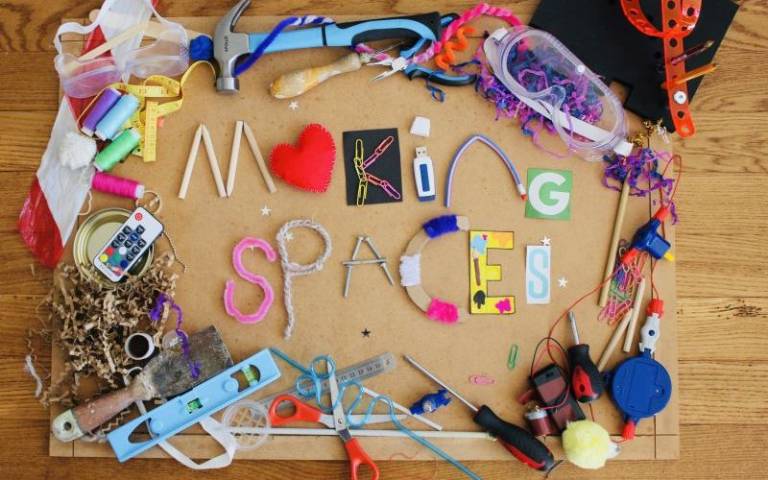New publications encourage practitioners to reimagine makerspaces
23 April 2021
The Making Spaces team has released a four-part publication series to support professional reflection among practitioners and help makerspaces build capacity for more equitable and socially just practice.

Making Spaces is a collaborative research and development project based at the UCL Institute of Education (IOE) that seeks to support equitable practice within makerspaces. Makerspaces are informal multipurpose sites designed for collaborative hands-on learning and creative production; these sites also offer valuable opportunities to help tackle the underrepresentation of marginalised groups in engineering, science and technology.
Relatively little research has been conducted with makerspaces in the UK to date, and one of the aims of the Making Spaces project is to address the current gap in knowledge regarding the roles, practices and possibilities of these contemporary places.
The new springboard publications are primarily targeted to makerspace practitioners, community organisers and policymakers, although they may have relevance for the wider STEM education sector and those working on education and equity projects. The Making Spaces Springboard series aims to be a ‘jumping off point’ for reimagining practice, starting a conversation within the sector and supporting the makerspace community in building a more equitable future.
The Making Spaces project aims to disrupt the commonplace idea that the most important aspect of a makerspace is its technology and equipment. Instead, the project focuses on advancing understanding of what constitutes effective and equitable pedagogy and identifies how makerspaces can support local communities. In particular, the project aims to empower young people to engage with technology and engineering and, in turn, offers ideas for how engineering and technology can become more inclusive and equitable.
Lead Researcher Kylo Thomas said: “Makerspaces have the potential to build communities, foster empowerment, and shape sustainable futures. However, currently makerspaces in the global north mainly attract participants from socially privileged backgrounds and reflect a traditional STEM demographic that is White, cis-male, middle class and able-bodied. Drawing on the experiences of young people and practitioners who are at the cutting edge of more inclusive practice, the Springboards combine these insights with evidence and ideas from the wider literature, including decolonial theory, critical race theory, and science and technology studies.”
The Making Spaces team are planning an online seminar for summer 2021 as an opportunity to further discuss ideas for how to support makerspaces to be more equitable and inclusive.
Download the Springboard series for free from the Making Spaces website
Links
- Project partners include Madlab (Manchester), Knowle West Media Centre (Bristol) and the Institute of Making (UCL).
- Follow Making Spaces on Twitter and Instagram (@M4kingspaces)
- Sign up to the Making Spaces mailing list
- Making Spaces website
- Centre for Sociology of Education and Equity
 Close
Close

